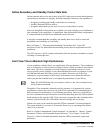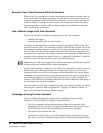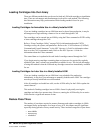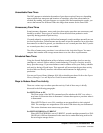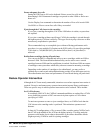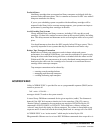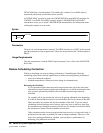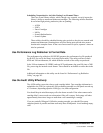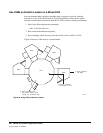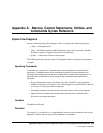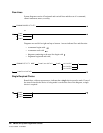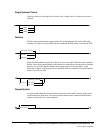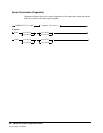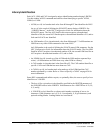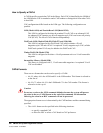
Chapter 6. Performance Considerations 427
1st ed., 6/30/04 - 312579601
Scheduling Nonproductive Activities During Low-Demand Times
There are several library utilities, which, though very essential, severely impact the
library’s ability to mount and dismount cartridges. The following utilities should not
be run when high-priority production jobs are pending:
• AUDIt
•EJECt
• Enter Cartridges
•MOVe
• Scratch Redistribution
• Scratch Update.
These utilities should be scheduled during quiet periods so they do not contend with
mounts and dismounts. Running these activities during quiet periods also ensures
that the tasks complete faster. In the case of mass enters or ejects, operator’s time can
also be optimized.
Use Performance Log Reblocker to Format Data
The performance log reblocker (SLUPERF) prepares the performance log file produced
by the SCP for use by the library Activities Report utility. The utility executes in both
MVS and VM environments, for which different versions of the utility are produced.
In the VM environment, SLUPERF reads an SCP performance log spool file into a CMS
file, preserving the internal record format. There should be no header or trailer data in the
file.
Additional information on this utility can be found in “Performance Log Reblocker
Utility” on page 263.
Use the Audit Utility Effectively
The AUDIt utility causes the robot to read cartridge labels. Tape cartridge information is
uploaded to the CDS. In a quiesced LSM, performing an audit on a full panel can take up
to 15 minutes, depending upon the LSM type, size, and configuration.
You should keep in mind that empty cells slow down an audit. If the robot cannot read a
cartridge label, it must reach out to determine if the cell is empty. Each empty cell takes
approximately three times longer to audit than a cell containing a cartridge.
If you are partially filling an LSM before running an audit, you should fill as many
complete panels as possible and then audit only those filled panels. Avoid auditing empty
cells.



